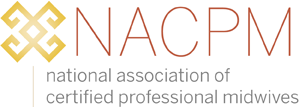Independent Practice for Normal Physiologic Pregnancies Managed by Licensed Midwives*
Independent as defined by no state requirement for physician supervision or collaborative agreement.
*Kansas and Missouri do not license midwives but independent practice is protected by supreme court ruling and statute, respectively.
Source: Statute Analysis
It is essential that Licensed Midwife (LM) statutes support independent practice, free from requirements for physician supervision or signed collaborative agreements, in order to ensure safe, accessible, and equitable maternity care. These types of mandates have been repeatedly shown to create unnecessary barriers to practice without improving outcomes. In many cases, physicians are unwilling or unable to enter into formal agreements due to liability concerns, institutional restrictions, or lack of familiarity with community birth and midwifery—effectively blocking midwives from licensure or reimbursement. This undermines client autonomy, reduces access in underserved areas, and reinforces power imbalances in the healthcare system. Independent practice recognizes that midwives are trained, credentialed professionals capable of providing comprehensive care within their scope and consulting or referring when clinically indicated. It fosters smoother interprofessional collaboration, respects the decision-making capacity of clients and providers alike, and brings midwifery into alignment with how other health professions are regulated across the U.S.

